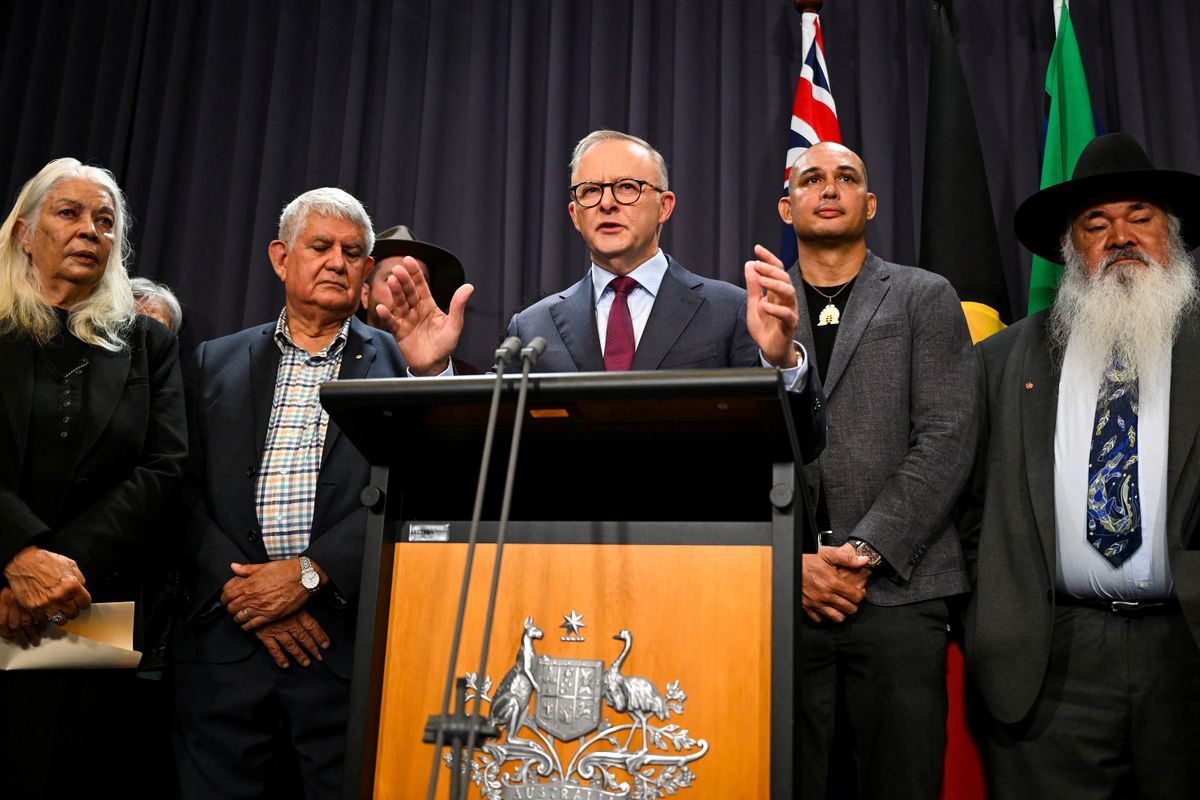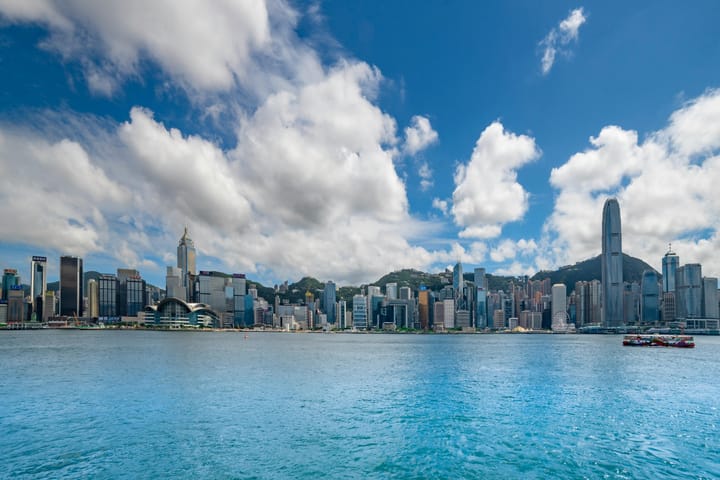Australia proposes a referendum for including Indigenous people in the constitution
In 2017, Indigenous advocates proposed The Aboriginal and Torres Strait Islander Voice.

A few minutes every morning is all you need.
Stay up to date on the world's Headlines and Human Stories. It's fun, it's factual, it's fluff-free.
The backstory: The Aboriginal and Torres Strait Islander people, who make up about 3.2% of Australia's population, aren't mentioned in its 1901 constitution. Actually, Australia never made a treaty with the Indigenous people who'd been living there for thousands of years, unlike other former British colonies. Throughout history, they've often been overlooked in what's known as the "Great Australian Silence." It wasn't until 1967 that the Aboriginal and Torres Strait peoples were counted as part of the Australian population. The country's Indigenous people continue to be disadvantaged, experiencing disproportionately high rates of both suicide and imprisonment.
More recently: In 2017, Indigenous advocates proposed The Aboriginal and Torres Strait Islander Voice. Last year, Australia's Prime Minister Anthony Albanese suggested a referendum to add a chapter to the constitution recognizing Australia's Indigenous peoples as the first people there. It also establishes a Voice for the Indigenous people, giving them representation in the government. The Voice would be an elected group to promote Indigenous interests but wouldn't actually vote on any proposed laws.
The development: On Thursday, Albanese released the official wording for the constitution changes to go to a nationwide referendum. The bill will go to Parliament first for approval. If everything goes smoothly in Parliament, the referendum will happen sometime between October and December. Albanese said that this Indigenous Voice is necessary to crush Indigenous disadvantage. Australia's conservative Liberal Party hasn't decided if it will support the Voice addition yet. Parliament would decide the details of the role of the Voice if the new chapter gets ratified.
Key comments:
"If not now, when?," Australian Prime Minister Albanese said, urging citizens to amend the constitution.
"We will decide in due course whether we support the Voice or oppose it," opposition leader Peter Dutton said, pushing for more details on how the Voice would function.
"On every measure, there is a gap between the lives of Aboriginal and Torres Strait Islander peoples and the national average," Albanese said. "A 10-year gap in life expectancy, a suicide rate twice as high, tragic levels of child mortality and disease, a massive overrepresentation in the prison population and deaths in custody, in children sent to out-of-home care. And this is not because of a shortage of goodwill or good intentions on any side of politics and it's not because of a lack of funds. It's because governments have spent decades trying to impose solutions from Canberra rather than consulting with communities."
"When we ran the dialogues all over Australia, our people spoke about not being listened to and not being heard. They spoke about powerlessness and voicelessness," said Megan Davies, an Indigenous lawyer who worked on the Voice proposal. "This prime minister, this government, has listened respectfully, genuinely, authentically."




Comments ()